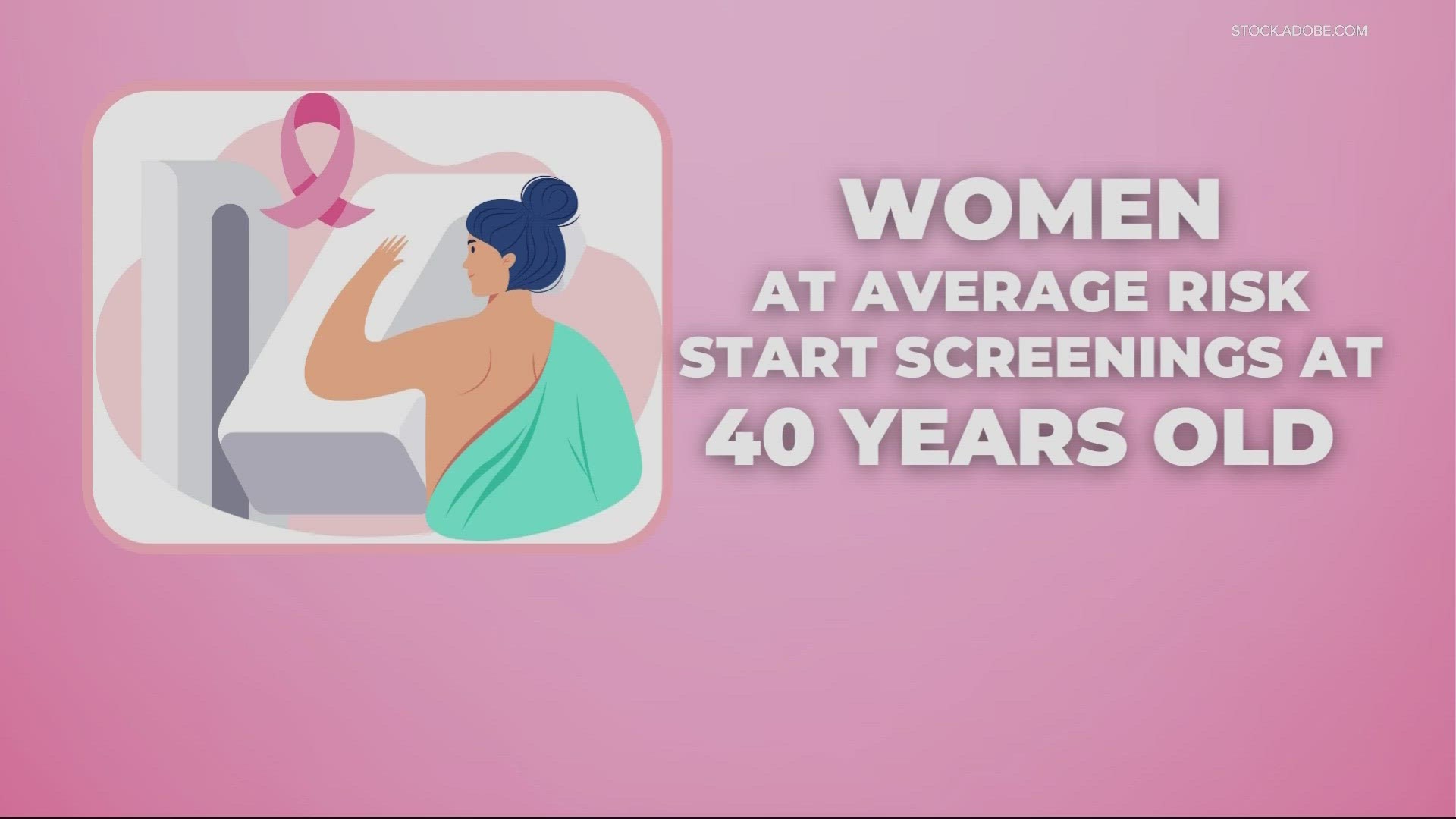PORTLAND, Ore. — One in eight women will be diagnosed with breast cancer in her lifetime. It is the most common cancer in women, but there is hope with prevention and early detection.
October is Breast Cancer Awareness Month, a time to celebrate survivors and those in the fight. It is also a great time to educate ourselves about changing guidelines and risk factors.
“We all know somebody who’s been affected,” said Dr. Tracy Muday, executive medical director for Regence. “Early detection is very important.”
The five-year relative survival rate for cancer diagnosed at the localized stage is 99%.
Advances in early detection and treatments have significantly increased breast cancer survival rates in recent years. Catching it early is truly key, and that starts with screenings.
“Guidelines for screening change a little bit over time as we accumulate more evidence,” Muday said. “When we’re screening people who don’t have any symptoms or problems — that’s the definition of screening — it’s important to balance the benefits of early detection with the harms of false positives.”
The United States Preventative Services Task Force is changing those guidelines right now. They recommend women at average risk of breast cancer start breast cancer screenings at 40 years old. That’s a change from the previous recommendation of starting at 50.
They recommend screening mammograms every other year for women aged 40 to 75.
“It’s important to know that that interval is for women at average risk. For women over 75 or for women who are at high risk, we don’t have as good data about exactly what the screening interval should be. So, those women should talk to their personal physician about their personal risks,” Muday said.
While self-breast exams are no longer recommended, you are still your own best advocate. It’s important to pay attention to your body, as well as the signs and symptoms of breast cancer.
“We don’t recommend self-breast exams anymore. We used to. We did them for a long time, but they actually increased the risk of getting surgery and a biopsy and they didn’t decrease the risk of dying from breast cancer,” Dr. Muday said.
- A lump in the breast or the armpit.
- A change in the skin: redness or dimpling of the skin
- A change in the size or contour of the breast or the nipple
- Nipple discharge that is not milky: clear or bloody discharge
- Breast pain
“All of those things can be caused by things that are not breast cancer, but all of those are worrisome enough that you need to get them evaluated by a doctor even if you’ve had a normal mammogram,” Muday said.
A family history is a key risk factor for women. About 15% of women diagnosed have a family history of breast cancer. Those with a first-degree relative (mother, sister, daughter) with breast cancer are nearly twice as likely to develop breast cancer themselves.
More and more research is also pointing to alcohol as a major risk factor for breast cancer. The more alcohol you drink, the greater your risk of developing breast cancer.
Having one drink a day (7 drinks per week) — regardless of if it’s wine, beer, shots or mixed drinks — increases your risk of breast cancer by 14%. 14 drinks a week increases your risk by 28%, according to the Oregon Heath Authority.
It is estimated that nearly 6% of all breast cancer deaths in Oregon are due to alcohol, using the CDC’s Alcohol-Related Disease Impact (ARDI) Method. Nationally, 4-10% of breast cancer cases each year are thought to be due to alcohol use. That equals 9,000-23,000 new breast cancer cases caused by alcohol use.
While there are a lot of risk factors that we cannot change, such as being born female and having a family history, there are things we can do to help prevent cancer; things like a healthy lifestyle, limiting alcohol, a healthy diet and staying physically active.
“Women who are physically active are less likely to die of breast cancer,” Muday said. “We don’t know exactly how much activity, but about 30 minutes a day of moderate activity is recommended.”
Finally, Dr. Muday says you cannot underestimate the importance of social connection for overall health.
“We know that social connectedness is a really important factor for health and longevity for everybody overall and that also holds true for people with breast cancer,” she said. “Women who are diagnosed with breast cancer who are socially isolated actually have a higher risk of death than those who are socially well connected.”

